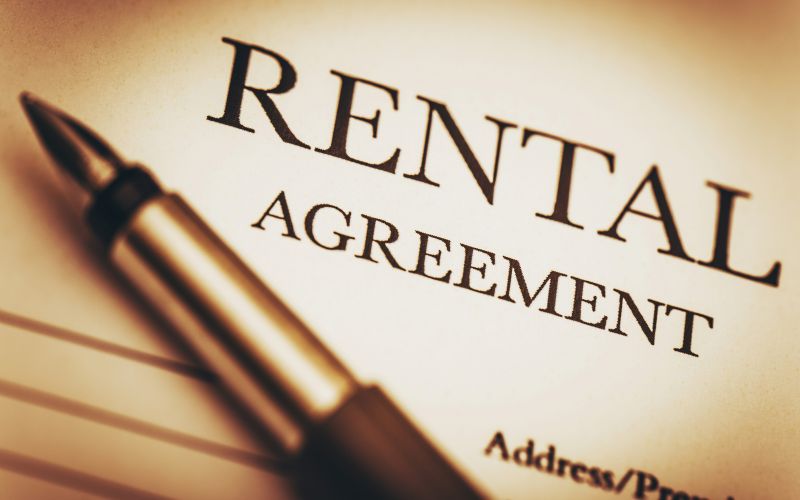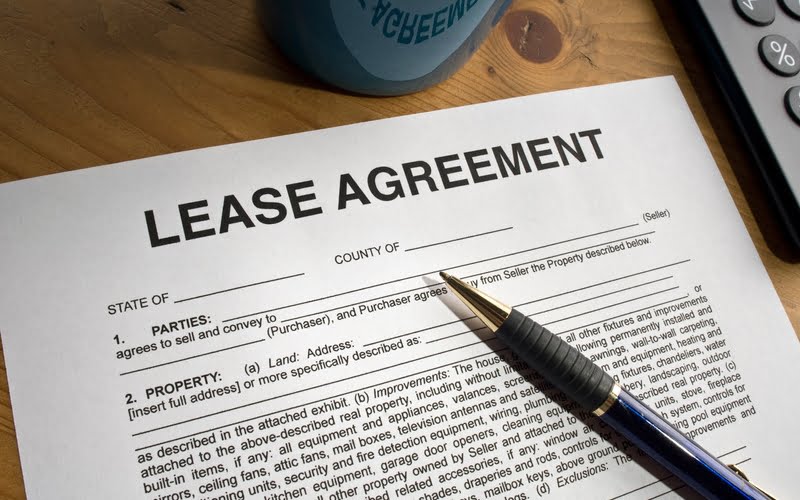Last Updated on March 18, 2024 by Kelvin Nielsen
Are you a tenant and are asking yourself how you can break the lease without penalty in Colorado? If you are, this article has you covered!
A fixed-term lease contractually obligates both you and your landlord for a specific period of time. During this time, both parties must abide by certain rules. For instance, as a tenant, you must continue paying rent and caring for the property, among other obligations.
On your landlord’s part, they must provide you with a habitable property and respect your privacy, among other obligations.
That said, life may happen and you may be left with no other option but to move out. You may have secured a better employment opportunity elsewhere, bought your own home, separated from your lover, or even become a victim of landlord harassment. The reasons for wanting to break a lease may be many and varied!
Not all reasons are created equally, though. Some may be able to free you from your lease obligations without penalty while others may not.
The following are answers to commonly asked questions on how to break a lease without penalty in Colorado.
How Can I Break My Lease Without Penalty In Colorado?
Under Colorado Law (Colorado Statutes Title 38 Article 12), a tenant may be able to break their lease without penalty for the following reasons.
#1: If you are starting active military duty.
Are you an active service member who has been relocated? If so, you may be able to break the lease early without penalty. You will need to provide your landlord with a written copy of your intention to move out.
Additionally, you must provide them with a copy of your military ID, as well as a letter from your commanding officer.
Once you’ve met these conditions, your tenancy will automatically end 30 days after the next rent cycle.
#2: If you are a victim of domestic violence.
You may also be able to break your lease early without penalty in Colorado if you have been a victim of domestic violence, sexual assault, stalking, or sexual abuse. You would only need to furnish the landlord with proof of the abuse, as well as a written notice of termination.
The proof can be documentation from a licensed healthcare provider, or a protective order. As for the written notice, you must provide the landlord with a 30 days’ advance notice prior to moving out.
#3: If the unit is no longer habitable.
As a renter in Colorado, you have a right to live in a habitable home. Among other things, the home must be free from vermin and pests, have functioning heating facilities, running hot and cold water, and proper weatherproofing.
The landlord must also fix any issues that might impact your physical health or safety within 4 days, or sooner in emergency situations.
If the landlord doesn’t do so, you may have a right to break your lease early without penalty.
#4: If you are a victim of landlord harassment.
Is your Colorado landlord harassing you by doing any of the following?
- Entering your home repeatedly without notice.
- Trying to evict you from the property illegally.
- Discriminating against you because of your race, color, religion, or any other protected class.
- Refusing to make requested repairs or maintenance.
If so, you may be able to terminate the lease early without paying any penalty. To do so, you must first file a complaint with the state’s District Court. Then, during the hearing, you must present your case and provide facts on the harassment allegations against your landlord.
#5: If you are physically or mentally disabled.
As with all other states, Colorado law allows landlords to break their lease without penalty in case of mental or physical disability.
Examples of physical disabilities under Colorado law include deafness, cerebral palsy, amputation, epilepsy, heart disease, and HIV/AIDS. Examples of mental disabilities include learning disabilities, intellectual disabilities, bipolar disorder, and mental retardation.
#6: If the landlord is retaliating against you.
Colorado law gives renters certain rights. Including, the right to report the landlord for health or safety code violations, withhold rent due to uninhabitable conditions, or join a tenants’ union to advocate for your rights.
After exercising any of these rights, the landlord must not retaliate against you by doing any of the following.
- Try to evict you from the property.
- Raise rent.
- Decrease services you enjoy under the lease.
- Interfere with your rights under the lease.
To break the lease without penalty due to landlord retaliation in Colorado, you must file a petition with the Colorado District Court. If the judgment is in your favor, not only will you be able to break free from your lease obligations, but may also be able to recover one month’s rent, plus reasonable court and attorney fees, and moving costs.
Can you Break a Lease in Colorado to Buy a House?
Yes, but you risk incurring significant penalties for not having a valid reason to do so. Other legally unjustified reasons for breaking a lease in Colorado include:
- Not liking your neighbors.
- Not liking the property.
- Having financial difficulties.
- Wanting to move to a different place for school or job.
How Long After Signing A Lease Can You Back Out In Colorado?
After signing a lease agreement in Colorado, you have a legal obligation to fulfill all obligations under the lease. In other words, once you sign it, you cannot back out from the contractual lease obligations without notifying the landlord of your intentions to move out. You may also be liable to paying a penalty.
The amount of notice to serve the landlord will depend on how long you have lived on the property. For instance, if you have lived on the property for a year, you must provide the landlord with a 91 days’ advance notice.
What Makes a Lease Legally Binding in Colorado?
Under Colorado law, landlords and tenants can establish a lease in either of three ways. That is, if there is a written- or oral agreement, or if the landlord accepts a payment as rent.
Additionally, a guest may also become a legal tenant after living on the property for a period of over 14 days within 6 months.
And once the lease is established, both parties must uphold the lease terms. If either party breaches the terms, the other party can take legal recourse.
Can A Landlord Break A Lease In Colorado?
Yes, a landlord may be able to break a lease in Colorado under certain circumstances. The reason for breaking the lease must be valid and the landlord must follow the proper legal process.
Under Colorado law, a landlord may be able to break the lease under the following scenarios.
- If the tenant violates a term of the lease. For instance, fails to pay rent when it is due, engages in illegal activity, or damages the property beyond normal wear and tear.
- If the landlord or a close family member wishes to move into the property themselves.
- If the landlord needs to sell the property.
- If the landlord wants to make substantial renovations or even demolish it.
How Much Does it Cost to Break an Apartment Lease in Colorado?

Go through the lease. If the lease contains an early termination clause, then you will only need to provide a notice of your intentions to move out, as well as pay a fee. The fee is usually one to two months’ rent.
However, without an early termination clause, then you may be liable to paying all the rent remaining under the lease. In such a situation, you may want to talk with your landlord for the best outcome.
One exception to paying a penalty fee or being liable to all rent due under the lease does exist, though. That is, if you have a legal reason to break the apartment lease. You may also be able to break the lease early without penalty if the landlord violates a term of the lease.
What Are Your Rights As A Tenant Without A Lease In Colorado?
Tenants without a lease are referred to as “tenants-at-will” or “tenants in sufferance.” But even with no lease, you still enjoy certain rights under Colorado law.
Including, the right to proper notification before lease termination, proper eviction process, habitable living conditions, and protection from privacy violations.
If you believe the landlord has violated any of your rights, you can file a complaint with the state’s Civil Rights Commission or the local housing authority. Suing your landlord in court may also be another option worth considering.
Does A Lease Automatically Go Month To Month In Colorado?
Yes, a lease can automatically go month to month in Colorado after a fixed-term lease expires. This can happen in either of two ways. One way it can happen is if the tenant refuses to leave after their fixed-term lease expires. And the other way it can happen is if the landlord doesn’t give notice to terminate the tenancy, and goes ahead to accept a rent payment from the tenant.
To evict a holdover tenant, a Colorado landlord must serve them a notice depending on how long they have lived on the property. If, for instance, the tenant has lived on the property between a period of 1 week and 1 month, the landlord must serve the tenant a 3 days’ advance notice.
How Long Can a Tenant Stay After The Lease Expires in Colorado?
Under Colorado law, a landlord must have probable cause to evict a tenant. Probable causes for tenant eviction in Colorado include illegal activity, lease violation, and failure to pay rent.
That said, a landlord in Colorado can refuse to renew a lease after it expires, and can evict the holdover tenant. To begin the eviction process against a holdover tenant, a landlord must serve them a 21-Day Notice to Vacate. This will give the tenant 21 calendar days to move out.
If the tenant fails to move out within the 21 days, the landlord may file a lawsuit in court. The court will then set a date for the hearing.
So, how long can a tenant stay after the lease expires in Colorado? A tenant can continue staying on the property until their eventual eviction, which can take anywhere between two weeks and four months.
What are Colorado Lease Termination Laws?
Colorado lease termination laws are specifically designed to protect both landlords and tenants. To break the lease, both parties must honor certain obligations.
For one, proper notice must be served on the other party. In a periodic lease agreement, both landlords and tenants can terminate the lease by giving the other party proper notice. The amount of notice to serve will depend on how long the tenancy has ran.
- If the tenancy is less than one week, the party terminating the lease must provide the other a 1 day advance notice.
- If the tenancy has run for more than 1 week but less than 1 month, the party terminating the lease must serve the other a 3 days’ advance notice.
- If the tenancy has run for more than 1 month but less than 6 months, the party terminating the lease must serve the other a 7 days’ advance notice.
- If the tenancy has run for more than 6 months but less than 12 months, the party terminating the lease must serve the other a 28-days’ advance notice.
- If the tenancy has run for more than a year, the party terminating the lease must serve the other a 91 days’ advance notice.
Two, Colorado lease termination laws require that the notice be in writing and delivered in person, by mail, or by email.
And three, in a fixed-term lease, both landlords and tenants may be able to break it early under certain circumstances. A tenant may be able to break it without penalty for reasons such as military service, domestic violence, and uninhabitable conditions.
A landlord, on the other hand, may be able to break it for reasons such as nonpayment of rent, violation of a lease term, or wanting to use the property for themselves or their close family members.
Conclusion
There you have it. Everything you need to know when it comes to breaking a lease without penalty in Colorado. Just make sure to notify your landlord in advance, as well as provide them with any relevant documentation prior to moving out.
Disclosure: The content herein isn’t a substitute for advice from a professional attorney. It’s only meant to serve educational purposes. If you have a specific question, kindly seek expert attorney services.
Sources: Colorado Statutes Title 38 Article 12, Servicemembers Civil Relief Act, Colorado Department of Regulatory Agencies, Legal Information Network of Colorado,

I am a real estate attorney with over 11 years of experience in tenant eviction cases. My mission here at LTRC is to help answer your commonly asked questions on everything regarding real estate laws, especially on eviction matters.
I’m a member of the following professional organizations: Attorneys’ Real Estate Councils of Florida (ARECs), Florida Bar Real Property, Probate & Trust Law Section, American College of Real Estate Lawyers (ACREL), and the Florida Association of Community Managers (FACM).







